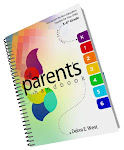Online Classes for Middle or High Schoolers
If you are thinking about letting your child take online courses not available at their current school, it is important to have the information to pick a reputable program. Below is an article giving you valuable advice.
Online classes: A choice for your middle or high schooler?
By Kay Johnson, Linda Broatch, M.A
Online academic classes for students in grades six through 12 have become a booming industry over the past decade. Online schools served 700,000 students in 2005-2006, mostly at the high school level.1 Students - and their parents - are drawn to online schools for very practical reasons: Kids can take classes not available locally, they can complete coursework at home, and they can set their own schedule and pace for completing a class.
When you hear the terms "online learning," "distance learning," or "virtual school," you might imagine a student working alone at a computer on an old-style, self-directed correspondence course, with minimal instructor contact. But, in fact, today's more sophisticated online schools may offer students such features as "real time" classroom discussion with the teacher and other students; regularly scheduled and/or "as-needed" phone and email contact with the teacher; assignments based in the real world; or the chance to join group projects and clubs.
Who sets standards for online schools?
Figuring out whether an online school might be a good option for your child and family requires the same kind of careful evaluation process you'd use to select any school. For parents of kids with learning difficulties, identifying a high-quality online school is just the first step. You'll also want to ask some specific questions to find out if a program is a good match for your child's particular strengths and challenges, both academic and technical.
Careful evaluation of online schools is also important because there are big variations in program quality, and in the way states oversee, regulate, and participate in administering these schools. In some states and districts, online schools are a hotly debated topic because of funding, oversight, regulatory, labor, and philosophical issues. As of 2006, according to the North American Council on Online Learning, 38 states had established either state-led online learning, or policies regulating online learning, or both.
There is no body of well-designed research yet on how effective online instruction is for middle school and high school students as a whole. However, there are some "best practices" emerging that help define higher quality programs. This article will describe several basic features to look for in an online school, and suggest questions parents can ask to help evaluate how well a school will meet their child's needs.
We decided to talk with representatives of the 2007 winner of the Best Practice Award from the nonprofit United States Distance Learning Association - the Florida Virtual School (FLVS) - so they could provide us with information and resources for this article. Florida Virtual School has been in operation for 10 years; in 2006 it provided 55,000 half-credit courses to middle and high school students.
Tomorrow the article will address is an online course a good option for my child with learning disabilities?










0 comments:
Post a Comment